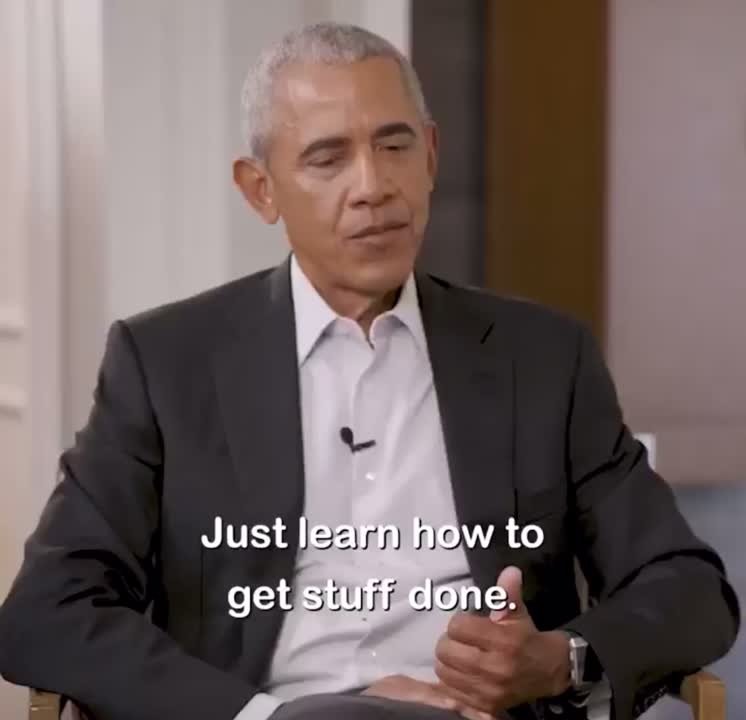- Generalist World
- Posts
- Generalist Power
Generalist Power
A rebuttal to the essay 'Generalist Disease'
It’s not often I’ll see an article that compels me to clear my schedule and compose a response. But here I am, coffee in hand, with a blank page and an open calendar in front of me.
This story begins yesterday. Dan Hockenmaier published an essay called Generalist Disease — you should read it here. Naturally, it got shared almost immediately in Generalist World.
In honesty, I thought this was extremely well written, and I hear many of the points that Dan made. Though Dan, respectfully, I disagree. In this essay, I hope to share a different perspective.
✍️ (Re)defining Generalists
Perhaps my biggest motivation for this essay is to challenge the narrative that being a generalist is a disease. Whilst this is undoubtedly a catchy essay title — I believe it to be fundamentally incorrect for a few reasons.
Being a generalist isn’t a choice, it’s how a subset of people approach the world
Through my work with with 1000’s of generalists over the past 18 months, I’ve come to realize: being a generalist isn’t something we choose. It’s something inherently in our nature — it’s how we see the world. We can think of this approach as a ‘cognitive preference’.
“Cognitive preferences are established when we are young. They are independent of our education, our culture, and other social conditioning” Harvard Business Review
Thinking beyond consulting
If we zoom out beyond the world of consulting, and even of tech, we find that generalists are everywhere. We’re needed in organisations of all sizes. Across the board, we're often hidden in plain sight. Bringing people, processes, and purpose, together.
If a company values cohesion, innovation, and efficient teams that don’t exist in silos — then it's simple. They need generalists, too.
Within Generalist World, the majority of people are working in the realm of tech and startups, but we have people working in 10,000+ people organisations, academic institutions, and even government. Though they come from many walks of life, from folks with PhDs to exited founders, they’re all people with one common trait: they’ve self-identified as being a generalist.
A new way of defining generalists
A large part of my work is pushing back on the old-school narrative that a generalist is just a jack of all trades. Instead, we view a generalist as someone who can apply their strengths across varied roles, domains, problems and contexts. What this brings is an incredible amount of perspective.
Coined by the phenomenal Erica Warp via the Redefining Generalists whitepaper.

💭 Diversity of thought
Particularly in the face of managing new, uncertain, and complex situations (read: every human on the planet’s future), having diverse knowledge and perspectives is becoming increasingly important.
Just like exposing ourselves to new people and experiences increases our surface area of luck, so too does exposing ourselves to diverse industries, knowledge and problems. The more we know about more things, the luckier we get.
“If you look for it, cognitive diversity is all around — but people like to fit in, so they are cautious about sticking their necks out. When we have a strong, homogenous culture we stifle the natural cognitive diversity in groups through the pressure to conform. We may not even be aware that it is happening.
If cognitive diversity is what we need to succeed in dealing with new, uncertain, and complex situations, we need to encourage people to reveal and deploy their different modes of thinking — Harvard Business Review
🤝 Big, meaty, problems
To solve the big, meaty, problems we face as a society, we need diverse perspectives — new and creative ways of approaching problems. We need people who can join the dots, see patterns in the chaos, and be the thread that ties everything together (s/out Lucy).
In my opinion, the debate shouldn’t be: generalist vs. specialist. The conversation shouldn’t be that generalists are broken, or wrong, or ahem, diseased. We need specialists with deep expertise collaborating with big-picture, lateral thinkers. It’s not a VS, but a PLUS.
It’s my belief that our energy is best spent figuring out ways that generalists and specialists can each leverage their unique talents, and work together. I believe we should spend less time trying to mould people into shapes that don’t fit them, and more time creating a system where each can thrive.
Why? Because the problems of our generation are too urgent to paint everyone with the same exact brush stroke. Complex, messy, problems take diverse thinking & perspectives to untangle.
🕰️ Zeitgeist
Just last week I was invited to speak on a panel at one of the most respected institutions in the country — The London School of Economics.
Going into this talk, LJ, the Head of Entrepreneurship at LSE said "you know Milly, we weren't sure how many folks would show. We didn't know if this topic about generalists was going to land". I don't blame her. There's been a negative connotation with the term, and value, of a generalist for a very long time.
But here’s what happened:
The panel was the most oversubscribed talk at LSE Generate’s Freshers Week (with people being turned away at the door and sitting on the floor to join in)
Prompting a rethink — “it spoke to the times and most importantly, it spoke to our students”.
Further to this, is the launch of LIS. You’d be forgiven if you hadn’t heard of the London Interdisciplinary School, being so new to an academic scene which is traditionally 100+ years old. The Times described them as “the most radical new university to open in decades”.
When a university dedicated to interdisciplinary thinking opens, you know this is more than a trend or a buzzword. This is academics, organisations, and individuals, agreeing that interdisciplinary and cross-functional skills aren’t just nice to have, they’re essential.

Source: https://www.lis.ac.uk/about
☄️ Optimizing for optionality impact
“The hallmark symptom of people with Generalist Disease is optimizing for optionality. In order to open as many doors as possible in the future, they chase breadth (exposure to as many industries and functions as possible) and chase prestige (logos and titles that look good on resumes).”
This quote assumes that we seek breadth for a potential upside in the future. I disagree. What if optionality isn’t the goal? What if the goal is not to have lots of scattered options, but to find the most meaningful, aligned problems we can personally tackle? What if the goal is to use our skillset to drive outsized impact?
The generalist path often ends up being the road less travelled, but a path that has prioritised work with meaning.
I liken it to the (cheesy but very true) saying: it’s about the journey, not the destination. From my work with the Generalist World community, a pattern I see time and again is the seeking of meaningful work. Work that has an impact. Often this will result in a trade-off for monetary compensation and fancy titles.
To counter Dan’s point on chasing prestige — anecdotally, I have seen the exact opposite to be true among generalists.
😊 There is something Dan and I agree on:
"The first 10 years of your career are for learning what you want to do. The next 10 are for getting great at it. The next 10 are for making an impact and making money.”
Where our opinions diverge, is that this outcome isn’t reserved for an elite group of specialists.
I also won’t sugarcoat it: being a generalist in your early-mid career can feel like a slog. It’s likely at some point you’ll lose out to specialists in a head-to-head competition for a role. It’s likely you’ll take a pay cut along the way whilst you load up on a new skill set. You’ll need to get comfortable with managers seeing you have enormous value, but not quite being sure how to progress you.
This tends to flip as you reach your mid-senior career. Now, you have proven, stored expertise in multiple domains. Your diverse experience makes you a brilliant candidate for leadership roles. It’s why often the greatest entrepreneurs and CEO’s — are indeed generalists at heart.
It might also be helpful to consider different archetypes, or shapes, of how we work — T-shaped, Pi-shaped and Comb-shaped. I’m sure these shapes will develop further in the future, but what they signal is that there’s huge diversity in the way we think and approach work. It’s not a binary ‘this or that’, and to look at it as such is missing the full picture.
As Tim Ferriss says: try to combine a handful of skills that are rarely combined. He calls this being a ‘specialized generalist’ — having expertise in a few areas that give you a unique competitive advantage.
Wherever you fall on the generalist to specialise spectrum, or whatever shape resonates most with you — it’s diversity of thought that makes for fast-moving, innovative, happier, and ultimately, exceptional teams.
💭 A final thought
In truth, even I, leader of the generalist movement (😅) struggle to put all this into words. We’re all working in an increasingly complicated, fluid system with so many factors at play.
I can respect and see how Dan came to many of his conclusions, especially from the specific lens of working at a big consulting firm. My hope is that I’ve been able to spotlight the other side of the coin through what I’ve seen both in Generalist World and in the macro-environment.
As this Forbes article sums up nicely “remember that there’s not one definition of career success — and we could all benefit from more knowledge and understanding”
PS — big thanks to Dan for his original article. I hope my response can be seen for its intention: to continue healthy, constructive discourse around what can help us create more meaningful careers, build better teams and, ultimately, solve the world’s most pressing problems.
See you next week, till then — I’m cheering for you! 🎉
 | Milly TamatiFounder & Chief Generalist |
🔈️ Help us turn it up! You can play your part in amplifying the generalist movement simply by screenshotting something from this essay & sharing your thoughts on socials (tag @generalistworld)



Join the conversation